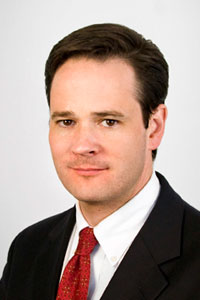 “Sometimes dead really is dead — and for this Congress, barring a miracle, climate action is finished. With an ugly election looming in November, it may be years before we get another chance to debate a bill that prices carbon.”
“Sometimes dead really is dead — and for this Congress, barring a miracle, climate action is finished. With an ugly election looming in November, it may be years before we get another chance to debate a bill that prices carbon.”
That’s Eric Pooley writing this week in Yale e360. He’s the author of The Climate War, reviewed here a month ago. His e360 article recognises a defeat. But not the war’s end.
“Some will argue that this latest setback is proof that the U.S. will never cap carbon. I reject that view. All we can say for sure is that the U.S. will never cap or price carbon until the politics of the issue change — so the first order of business must be to begin improving the political atmosphere.”
He looks at the main culprits of the current defeat and suggests how strategy might be improved for the future
The Professional Deniers. Their disinformation, amplified via the Internet, helped poison the debate. To counter the deniers’ campaign, President Obama needs to speak out forcefully, and champions of the clean energy economy must point to how effective it is proving.
Senate Republicans. It’s hard to forge centrist solutions when an entire party is denying there’s a problem and vilifying the solutions. A scaled-back approach, one that can be sold as a modest, incremental step and not a new industrial revolution, might fare better.
Senate Democrats. A dozen or more centrist Democrats — from states that either mine coal or produce much of their electricity from it — were dug in against the bill. It is impossible to tell if the senators were truly concerned about what the cap would do to their state economies — nonpartisan studies suggest its impact would be minimal — or just worried about what attack ads would do to them. Again, a more modest first step could change the dynamic.
The Green Group. The Green Group (an unofficial association of the leaders of the big U.S. environmental organisations) held out for an economy-wide bill even after it became clear, in late 2009, that it was unachievable in the Senate. Only recently, and too late, did they try to negotiate a compromise cap on electric power plants, which account for 40 percent of U.S. emissions.
The Power Barons. They sought too much by way of free carbon allowances and regulation easing. The pleasure some of them took in the demise of the bill may be short-lived as the battle to reduce emissions moves to the Environmental Protection Agency (EPA) and the courts. There was only one player with the clout to cut a fair deal with the power barons and he was missing in action.
The President. He chose not to lead on this issue. He never threw himself behind a particular climate bill. He left it to the Senate, the Green Group, and the power bosses — all of whom were sorely in need of adult supervision. To the bitter end, the White House pursued what his aides called a “stealth strategy” that deployed the president only sparingly. It was a colossal failure of nerve, and a decision that likely destroyed any chance of achieving climate action in Obama’s first term.
It may take time to get another shot at legislation, but in the meantime Pooley points to important work to be done. Greenhouse gas emissions have been dropping in the US, and not just because of the recession. Many clean energy projects are under way across the country that save money, create jobs and reduce emissions. Existing regulatory authority can enhance that trend. It won’t be sufficient, but it will provide evidence to voters that cuts are both technologically feasible and economically sustainable.
Until the next legislative opportunity comes the climate war will be waged by cities, states, regional cap-and-trade programmes, and, above all, the EPA. It will be the sort of costly, protracted, plant-by-plant trench warfare the cap was intended to avoid. Since the utilities and the manufacturers weren’t willing to cut a deal, this is what they get. The fragile period of compromise and cooperation between environmentalists and big business may now be coming to an end.
There will be an attempt to strip the EPA of its authority over carbon. That is a fight Obama can’t possibly duck because “it is our last line of defence”.
I welcomed those early bold words of Obama on climate change: “The science is beyond dispute and the facts are clear. Now is the time to confront this challenge once and for all.” Not all the blame for this defeat can be laid at his door, but he has hardly displayed the upfront leadership his words indicated we might expect.
Not that leading from the front would necessarily have produced a different outcome. Those opposing forces which Pooley identifies are very powerful in American society and Pooley, critical though he is of the President, doesn’t suggest that a head-on collision would have produced a better result. In fact he seems to be suggesting that a more incremental strategy may be the best way to counter the implacability of the bill’s political opponents.
Incidentally, Joe Romm notices that Eric Pooley omits the press from his “Murderers’ Row” listing for the bill’s homicide. It’s an omission he finds surprising given that in his book Pooley takes the press to task. Romm himself would certainly add them. He even posits that if Obama hadn’t wimped out and had delivered strong public messages the media might well have destroyed the impact by “balancing” it with bad economics and scientific disinformation.
Pooley has followed the climate war closely over a period of three years, as he details in his book. He didn’t predict a successful Senate outcome. Indeed he concluded the book with a picture of campaigners shaking off their blues, throwing back their shoulders, and marching back to the sound of the guns. What else can they do?
Postscript: The kind of pressure the EPA is likely to experience and the robustness of its response can be seen in its recent rejection of petitions challenging its 2009 determination that climate change is real, is occurring due to emissions of greenhouse gases from human activities, and threatens human health and the environment.
Like this:
Like Loading...
 Not infrequently when reading and reviewing a book I find myself wishing there was some way of lingering longer on what it has to say before the spotlight moves on. David Orr’s Down to the Wire: Confronting Climate Collapse, published in 2009 and reviewed here, was one such book, and it was therefore with pleasure that I saw it highlighted on Joe Romm’s Climate Progress a few days ago. A paperback version is to be published in some months’ time and Orr (pictured) had sent Romm a copy of the new preface.
Not infrequently when reading and reviewing a book I find myself wishing there was some way of lingering longer on what it has to say before the spotlight moves on. David Orr’s Down to the Wire: Confronting Climate Collapse, published in 2009 and reviewed here, was one such book, and it was therefore with pleasure that I saw it highlighted on Joe Romm’s Climate Progress a few days ago. A paperback version is to be published in some months’ time and Orr (pictured) had sent Romm a copy of the new preface.

 “We will keep fighting” vowed Bill McKibben at the end of his book
“We will keep fighting” vowed Bill McKibben at the end of his book  “Sometimes dead really is dead — and for this Congress, barring a miracle, climate action is finished. With an ugly election looming in November, it may be years before we get another chance to debate a bill that prices carbon.”
“Sometimes dead really is dead — and for this Congress, barring a miracle, climate action is finished. With an ugly election looming in November, it may be years before we get another chance to debate a bill that prices carbon.” Obama must take a different tack, says economist
Obama must take a different tack, says economist